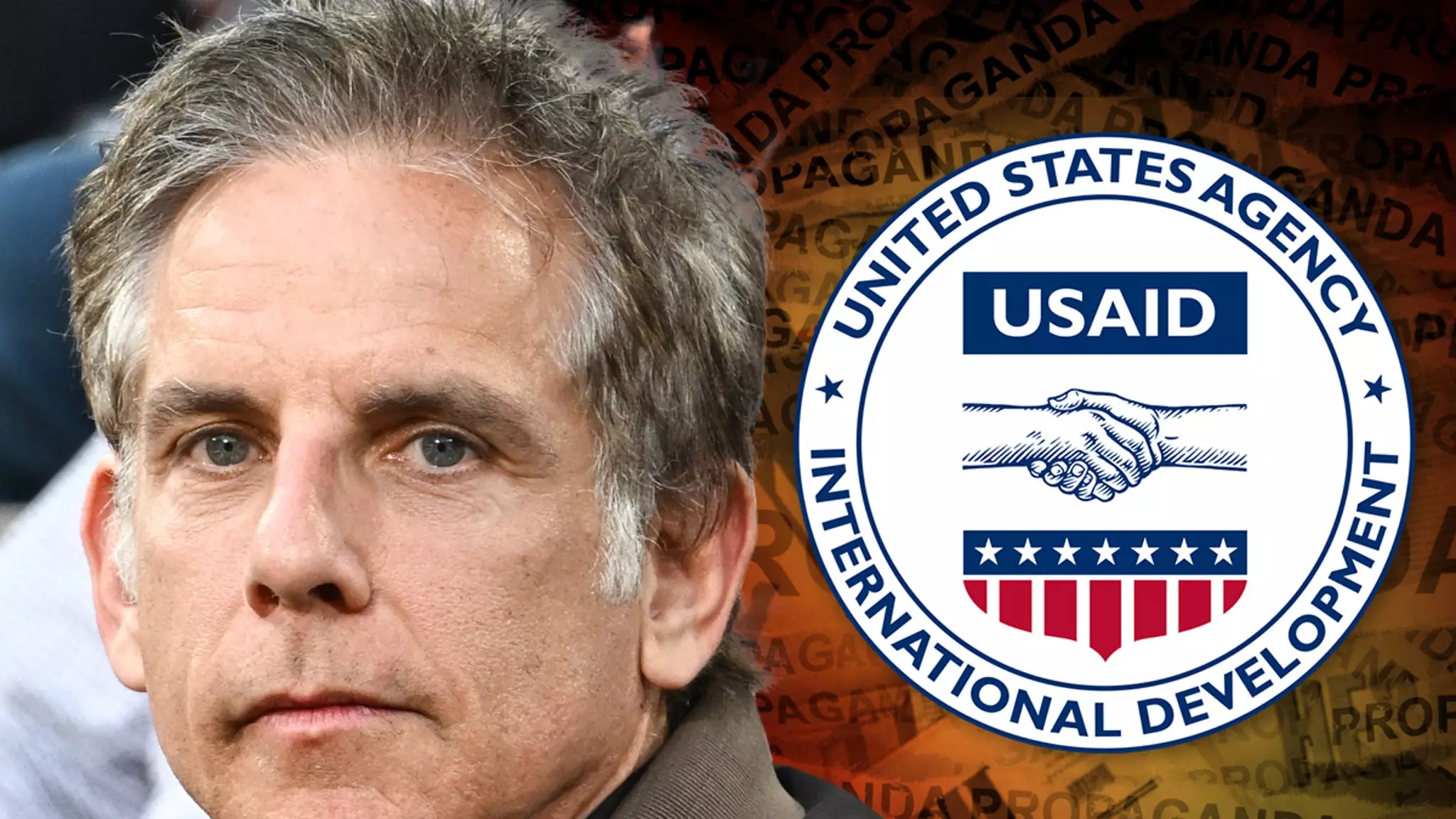In recent days, a wave of misinformation surrounding Ben Stiller’s humanitarian mission to Ukraine has made headlines, suggesting that the actor was financially supported by USAID for his visit. Prominent figures, including Elon Musk, propagated this narrative through a misleading video that circulated on social media platforms, particularly X (formerly Twitter). This video falsely asserted that several celebrities, including Stiller, were compensated with taxpayer dollars for their humanitarian work in the war-torn nation. Stiller, taking action against these inaccuracies, firmly denied all allegations, asserting that he funded the trip entirely out of his own pocket.
Stiller’s journey to Ukraine took place in 2022, amidst the ongoing conflict precipitated by Russia’s invasion. He had the opportunity to meet the Ukrainian president, Volodymyr Zelensky, whom he praised as a “hero.” This encounter highlights the ongoing commitment of various public figures to raise awareness about humanitarian crises, regardless of the often precarious and perilous conditions they may face. His commitment was not only a personal statement but a call for collective action, exemplified by his participation in World Refugee Day where he urged global support for vulnerable populations.
The crossing of celebrity and humanitarian discourse raises critical questions about how these figures influence public perception and policy. Stiller’s decision to self-fund his trip reflects a growing movement among celebrities who seek to promote direct engagement rather than relying on institutional support that may be mired in political controversy or corruption. However, the rapid spread of misinformation, spearheaded by influential figures and bolstered by algorithm-driven social media dynamics, reveals a troubling undercurrent: often, the narrative around such humanitarian efforts can be hijacked or distorted for political ends.
The dissemination of misleading narratives not only undermines the credibility of public figures such as Stiller but also jeopardizes the critical humanitarian work being done on the ground. As Musk’s remarks about USAID’s integrity threaten to dismantle vital support systems for international aid, it becomes crucial for celebrities to uphold transparency regarding their involvement in such efforts. Stiller’s insistence on clarifying the source of misinformation emphasizes the vital role that accurate information plays in mobilizing support for humanitarian causes.
In an era where social media can amplify even the most unfounded claims, the responsibility lies with both public figures and consumers of information to engage critically with the content they encounter. As Stiller continues his advocacy, his stand against misinformation serves as a reminder of the importance of integrity in humanitarian work, irrespective of the political context. The actor’s actions encourage others to support credible efforts while challenging false representations that may detract from the urgent needs of those suffering amidst conflict.

